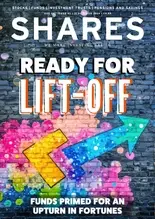
Stocks in London ended in the green on Friday, as the latest data pointed to slowing US producer price inflation.
The FTSE 100 index closed up 15.92 points, or 0.2%, at 8,253.65. The FTSE 250 ended up 71.50 points, or 0.3%, at 20,779.87, while the AIM All-Share closed down 0.68 points, or 0.1% at 733.85.
Over the week, the FTSE 100 lost 0.3%, while the FTSE 250 and the AIM All-Share lost 0.7%
The Cboe UK 100 ended up 0.3% at 827.09, the Cboe UK 250 closed up 0.3% at 18,242.30, and the Cboe Small Companies ended up 0.3% at 14,615.00.
According to the Bureau of Labor Statistics, producer price inflation slowed to 1.8% on-year in September from 1.9% in August, the latter which was upwardly revised from 1.7%.
Monthly producer prices were flat in September, slowed from a 0.2% uptick in August.
Producer prices excluding food, energy and trade rose by 3.2% on-year in September, decelerating from 3.3% growth in August. Monthly, producer prices excluding food, energy and trade were up 0.1%, slowed from 0.2% in August.
Local data from earlier in the day showed that UK gross domestic product expanded 0.2% on-month in August. The UK economy had tread water in July from June, according to the Office for National Statistics.
The August growth was in line with the FXStreet cited consensus.
Danni Hewson at AJ Bell said after two months of ‘flatlining’ it will be ‘welcome news’ to the government that forward economic momentum returned in August.
But she cautioned the broader picture is of a country still ‘trudging along, finding it hard to change gear. And there’s concern that August was a blip, and that September’s numbers will herald a return to the flatline that seems to have become the new normal.’
In European equities on Friday, the CAC 40 in Paris ended up 0.5%, while the DAX 40 in Frankfurt ended up 0.8%.
German consumer price inflation cooled in September, numbers from Destatis confirmed on Friday.
In line with its first estimate, numbers from Destatis showed consumer prices rose 1.6% in September from a year before, slowing from a 1.9% climb in August. September’s reading is the tamest rate of inflation since February 2021, when it stood at 1.5%.
The harmonised consumer price index - which allows for EU-wide comparison - rose 1.8% annually in September, slowing from 2.0% in August. On a monthly basis, harmonised prices fell 0.1% in September, compared to a 0.2% decline in August.
According to separate data from the Office for National Statistics, UK gross domestic product expanded 0.2% on-month in August. The UK economy had tread water in July from June.
The August growth was in line with the FXStreet cited consensus.
The ONS noted services output rose 0.1% in August from July. It had risen 0.1% in July from June. Industrial production rose 0.5% monthly in August, following a 0.7% fall in July from June.
On-year, industrial output fell 1.6% in August, after a 2.2% slide in July.
The pound was quoted at $1.3074 at the London equities close on Friday, up compared to $1.3052 at the close on Thursday.
The euro stood at $1.0942 at the European equities close on Friday, against $1.0929 at the same time on Thursday. Against the yen, the dollar was trading at JP¥149.13, up compared to JP¥148.47 late Thursday.
On London’s FTSE 100, J Sainsbury fell 5.9% after Reuters reported its largest shareholder has cut its stake.
Citing a regulatory filing, Reuters said the Qatar Investment Authority will sell 109.4 million shares in Sainsbury’s at 280 pence each. The sum represents roughly 5% of its stake in the company. It had around a 14% holding prior to the stake sale.
Dan Coatsworth, investment analyst at AJ Bell, said the fact the stock has fallen below QIA’s placing price does suggest that some investors have been ‘spooked’ by the news, ‘wondering why the biggest shareholder is reducing its position at this point in time.’
BP shares fell 0.3%. It said it expects net debt to be higher at the end of the third quarter, primarily due to less profitable refining activities.
In a trading update, the London-based oil major said weaker refining margins will hit earnings in the customers and products segment by between $400.0 million to $600.0 million compared to the prior quarter, and that the oil trading result is expected to be weak.
Stocks in New York were higher at the London equities close, with the DJIA up 0.9%, the S&P 500 index up 0.6%, and the Nasdaq Composite up 0.3%.
Former US President Barack Obama urged voters to back Kamala Harris, as he brought his star power to the 2024 election campaign trail for the first time.
Obama also trained his fire on Trump during a pumped-up rally in Pittsburgh, comparing the Republican’s long speeches to late Cuban communist leader Fidel Castro’s, and calling the billionaire out of touch with ordinary people.
The former president admitted that ‘this election’s going to be tight’ as many voters were still struggling with high prices. But he told the crowd that ‘what I cannot understand is why anybody would think that Donald Trump will shake things up’.
As the crowd booed Trump, his successor in the White House, Obama added: ‘Don’t boo – vote.’
‘Kamala is as prepared for the job as any nominee for president has ever been,’ he added.
Brent oil was quoted at $78.67 a barrel at the London equities close on Friday from $78.23 late Thursday.
Hurricane-related concerns in the US, coupled with Middle East fears, continued to drive the energy market, which is becoming increasingly volatile.
Oil prices recovered on Thursday as traders ‘switched back to focusing on supply concerns’, said ING analysts Warren Patterson and Ewa Manthey.
‘Over the past few sessions, the oil market has been constantly vacillating between demand and supply concerns making for a highly volatile period,’ Patterson and Manthey said.
Traders are waiting for any potential Israeli retaliation against Iran for missile attacks last week, Stephen Innes of SPI Asset Management said.
‘While the US and other Gulf nations have been pushing for Israel not to target oil infrastructure, this can’t be ruled out completely,’ Innes said, also highlighting US hurricane worries.
Gold was quoted at $2,658.30 an ounce at the London equities close on Friday against $2,620.84 at the close on Thursday.
Bullion continued to recover after nearly hitting the $2,600 an ounce mark recently, following stronger-than-expected US consumer prices.
‘Gold continued its recent rebound after bottoming out above $2,600, trading this morning mid-way between the $2,685 high and local support,’ analysts at Saxo said.
On Monday’s UK corporate calendar, there are half-year results from 1Spatial, as well as trading statements from Ashmore Group, Chemring, and PageGroup.
The economic calendar has both CPI and PPI from China.
Copyright 2024 Alliance News Ltd. All Rights Reserved.




